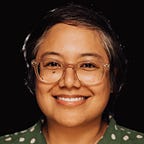Processing Foundation Funding Update
The Processing Foundation supports artists, students, and educators through its free and open-source software and public programming driven by the needs of the open-source software communities we serve. We are currently in the process of restructuring and reframing how we work and serve our community members.
As of the end of 2021, Processing Foundation received approximately $10 million in donations from our generous community of artists and technologists to our annual fundraising that celebrated the 20th anniversary of Processing. The Processing Foundation team wants to express their deepest gratitude to all of the donors for supporting our work.
The majority of the donations in 2021 came from artists donating cryptocurrency to the Processing Foundation. Large donations were directed from Erick Calderon, Tyler Hobbs, Casey Reas, Michael Connolly, TAKAWO Shunsuke, Joshua Davis, Shvembldr, Aluan Wang, Monica Rizzolli, Matt DesLauriers, Joonas Toivenen, Jason Ting, and Lia. Donations were also made in other ways from Jared Tarbell, Dmitri Cherniak, Frederik Vanhoutte, and other anonymous donors. Many artists contributed to the Processing 20th Anniversary fundraiser through Hic et Nunc in August 2021, making it our most successful fundraiser to date. We also received many generous donations during our annual fundraiser in December. These individuals have allowed the Foundation’s work to become sustainable for the first time, and have enabled all of the changes we’re announcing through this letter. We’re extremely grateful now and forever to everyone who donated in 2021.
In March 2022, because of concerns over environmental impact, the Processing Foundation Board decided to suspend new Ethereum donations, but to continue to accept donations via Tezos, a blockchain that is more environmentally friendly. Our current policy is to convert all cryptocurrency donations to USD.
The Foundation is currently engaged in a strategic planning process, working with our directors, advisors, team, and external partners and collaborators to create a long-term, sustainable plan to distribute the funding to support the expansive community of artists, students, and educators that has grown over the past 20 years. Priority areas include expanding our annual fellowship granting program, ensuring the continued stewardship and development of software projects and communities, creating more opportunities for community members to take on funded leadership roles in these projects, and better supporting the Foundation staff through salary and benefits.
We have also engaged a financial advisor to lend expertise in longer-term planning that will enable us to provide sustained resources to meet community needs.
We’re continuing to develop our processes to better enable individuals invested in access and inclusion in art and tech to donate funds and resources to programming and software projects. In our commitment to sustainable open source and knowledge sharing across open-source communities more broadly, we’ll continue to examine our processes around fiscal sustainability, funding sources, and the process of ‘decolonizing wealth’ to support radical reciprocity in open source. Many organizations face these challenges and tensions and we hope we can spark further discussion around sustainability, labor in open source, and economic justice.
Without your support, the Processing community, software, and public programs would not exist. You have made it possible to provide continued resources and mentorship to the creative community that has enabled Processing Foundation’s software to be maintained for millions of people around the world. The Foundation’s vision is to create a system that becomes self-sustaining and one built on the tenets of trust, care, and reciprocity for artists. The ultimate aim is to work, collaborate, and partner with the community to create a different way of being that adds to the lives and creative practices of the artists around the world.
Processing Community Lead and p5.js Editor Project Lead Fellowships!
Today, we’re announcing two open calls for two key Project Lead fellowships at the Processing Foundation. The p5.js Editor Lead Fellowship is a one-year paid fellowship to lead the p5.js Editor project. The Processing Community Lead is a one-year paid fellowship to guide and steward the global, decentralized community formed around the original Processing (Java) software. Please visit processingfoundation.org to learn more.
About Processing Foundation
Our mission is to promote software literacy within the visual arts, and visual literacy within technology-related fields — and to make these fields accessible to diverse communities. Our goal is to empower people of all interests and backgrounds to learn how to program and make creative work with code, especially those who might not otherwise have access to these tools and resources.
We do this by developing and distributing a group of related software projects, which includes Processing (Java), p5.js (JavaScript), and Processing.py (Python), and facilitating partnerships and collaborations with allied organizations and individuals, to build a more diverse community around software and the arts.
The Processing Foundation is specifically invested in expanding the communities of technology and the arts to include and support those who have not had equal access because of their race, gender, class, sexuality, and/or disability. We sponsor a Fellowship Program that funds exploratory, creative, and technical research; support an Advocacy Program, which focuses on nurturing diverse communities and their specific projects; produce public events that provide platforms for collaboration between our contributors; and take part in panels and talks that spread the word about the need for diversity in these fields.
At our core is the philosophy and politics of FLOSS (Free, Libre, Open Source Software.) We see software as a medium, something that connects two things. We view it as a means for thinking and making. We believe it should be free. We believe that learning to program is not about acquiring a certain skill set, but is instead a creative and exploratory process. We believe software, and the tools to learn it, should be accessible to everyone. We believe software literacy and an understanding of media of all kinds is essential knowledge for today.
For more information, please contact foundation@processing.org.
